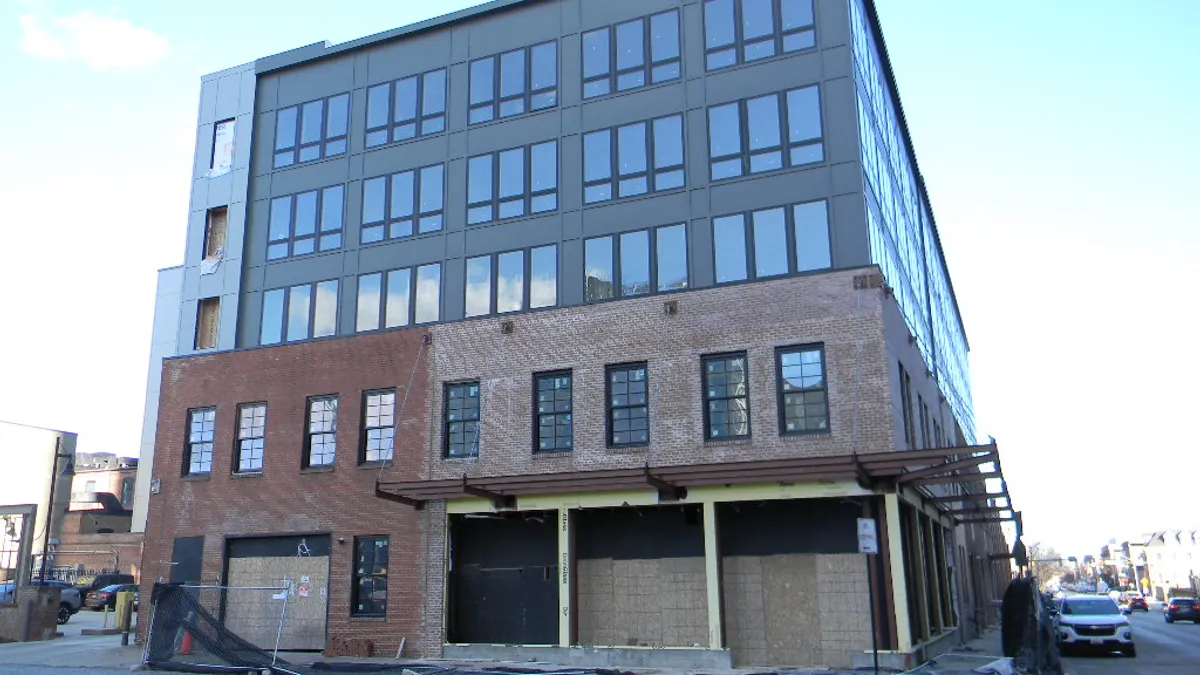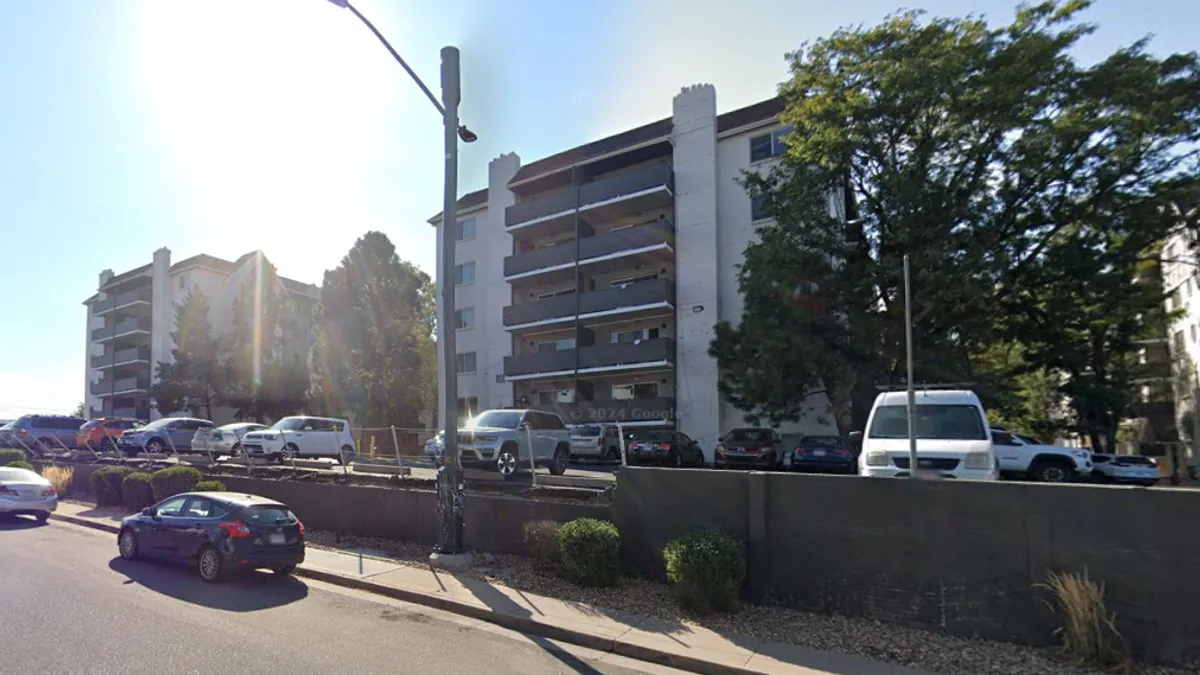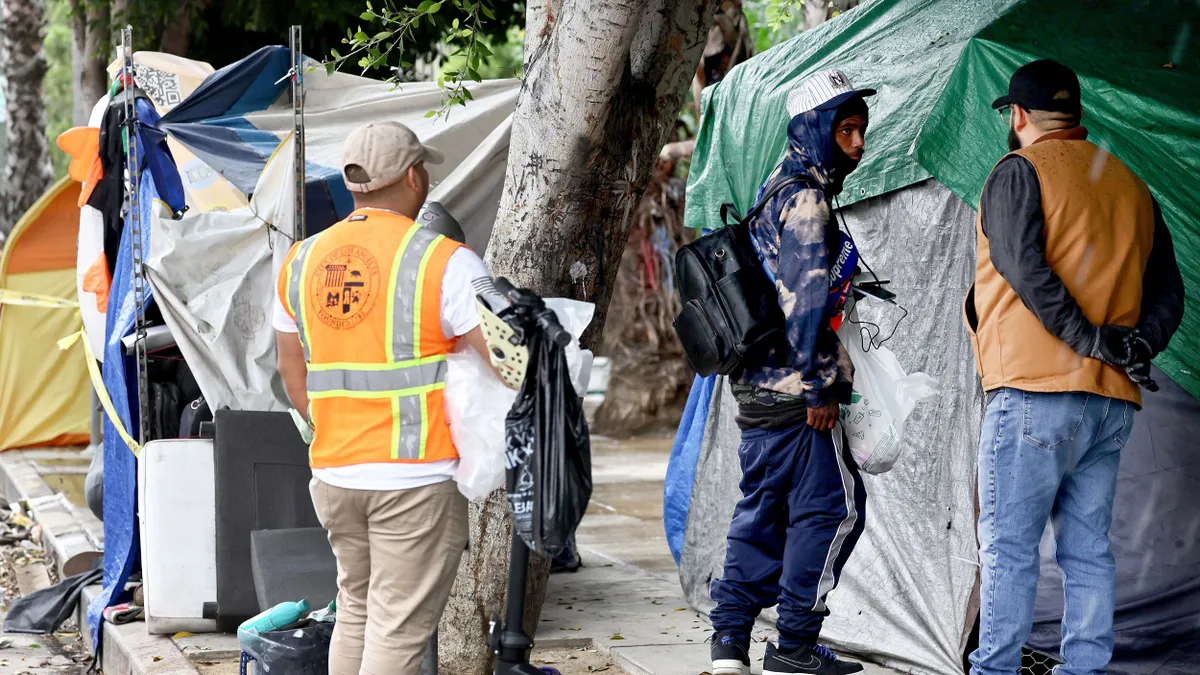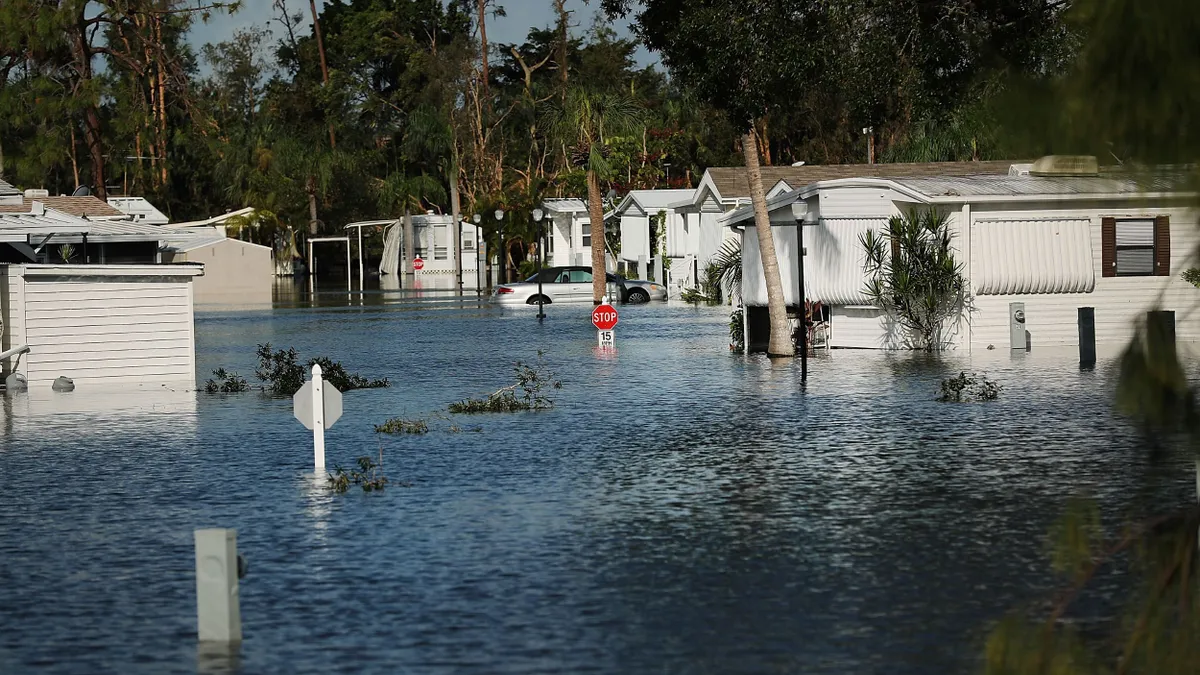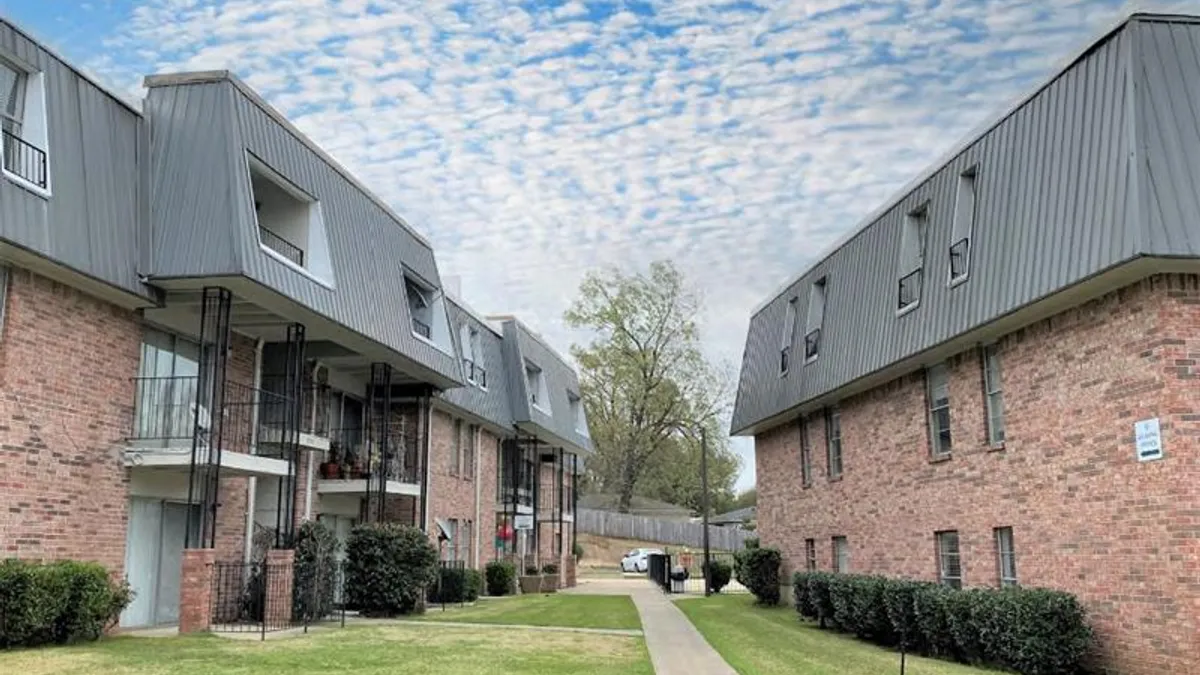Twelve percent more people in the U.S. experienced homelessness in 2023 compared with 2022, according to the 2023 homelessness assessment report the U.S. Department of Housing and Urban Development recently released.
Homelessness in Chattanooga, Tennessee, and its surrounding region fell 49% in that same period.
Advocates in Chattanooga attribute the region’s success to several strategies, including a focus on providing housing, eviction prevention, and collaboration among service providers to target resources to vulnerable populations.
While homelessness is different in every city, strategies that successfully reduce it are variations on a single theme, experts say. “The main thing is just getting people into housing,” said Steve Berg, chief policy officer at the National Alliance to End Homelessness. This sounds simple, he said, but the housing crisis rocking U.S. cities makes that easier said than done.
In Chattanooga, “homelessness looks different than it did before the pandemic,” said Mackenzie Kelly, interim executive director of the Chattanooga Regional Homeless Coalition, a group that works to coordinate homelessness response in the city. Kelly said that today, more families are experiencing homelessness than the numbers pre-pandemic, though single men still are the majority of people experiencing homelessness in the region.
Targeting at-risk groups
Targeting support to populations at greatest risk of homelessness is one way to use resources more effectively, experts said. “Figuring out [which] service providers can best serve the sub-populations, and then having them come together to figure out collectively how to target their sub-population,” makes curbing homelessness “feel way more attainable,” Kelly said.
In Chattanooga, targeted groups include veterans — the city virtually ended veteran homelessness in 2020, only for it to increase last year — families and youths. “We know if we can stop [homelessness] at a young age” and provide stable housing for impacted young adults, homelessness will be less likely in those young people’s futures, Kelly said.
However, the majority of Chattanooga’s homeless population is single men, not all of whom fall into categories that qualify for targeted assistance. Berg pointed out that the Temporary Assistance for Needy Families federal block grant provides funds for families, and the Department of Veterans Affairs provides services to veterans. But Berg said that a separate federal program for single men who are not veterans doesn’t exist outside of Medicaid. Health issues often contribute to homelessness, Berg explained. In most states, Medicaid provides health insurance to adults without dependent children, but Tennessee is one of 10 states that has not expanded Medicaid to do so.
Chattanooga’s permanent supportive housing, which comprises nearly 200 affordable housing units, is targeted toward people experiencing chronic homelessness — often single men, Kelly said.
Keeping people in their homes
Preventing homelessness before it occurs is another essential strategy in Chattanooga, these professionals say.
The city’s Eviction Prevention Initiative, launched in 2020, “has been a key piece in why we’ve been successful,” Kelly said. This program, which serves the entirety of Hamilton County, where Chattanooga is located, helps tenants at risk of eviction by paying landlords for past-due rent, as well as covering moving costs, rental deposits and court costs — a wide array of allowable costs that weren’t always permitted under the federal pandemic-era rental assistance program.
The goal is to help renters stay in their homes rather than force them into alternative accommodations like moving in with a family member, sleeping at a homeless shelter, or no housing at all.
“If we can stop the inflow, then we are going to see decreases” in the number of people that need housing, Kelly said.
Also, through the initiative, social workers with Habitat for Humanity provide supportive case management, and Legal Aid of East Tennessee provides legal assistance to clients facing eviction.
Debra House, executive director of Legal Aid of East Tennessee, stressed the importance of legal representation for low-income people facing eviction proceedings. By providing legal assistance, Legal Aid’s lawyers are keeping people housed and promoting stability for families and children, she said.
A mix of funding sources, including grants and state funds, supports the initiative. The City of Chattanooga has also supported the eviction prevention project, including by committing $1 million in American Rescue Plan funds to expand the initiative in its early days. It’s a good investment for the city, House said, given the return it provides by preventing homelessness. Between October 2021 and September 2023, the project helped 334 households avoid eviction, House said.
In just the past four months, Kelly said, the initiative spent about $500,000 preventing the eviction of low-income renters in the community.
Addressing rising housing costs and supply
Berg points out that homelessness across the country fell modestly between 2007 and 2017 before it began to rise again.
In that 10-year period, “Communities were adopting better practices of what to do with people who were homeless already,” he said. Berg thinks the recent increase in homelessness largely happened, in part, because “the improvement in homelessness practices had done what it could.”
Rising housing costs also began to reverse the downward trend, Berg said. Housing prices are “the main long-term trend that continues to drive homelessness up in most of the country,” he said.
For all its success, Chattanooga is not immune to that problem. “We have a huge housing crisis right now” in the city, Kelly said. “During the pandemic, we saw a big influx of folks moving here from out of state, and housing costs rose way more quickly than we were able to keep up with,” which led to some people losing their homes, she said.
Another challenge is housing availability, which is tied inextricably to cost. “Our largest problem is that we just don’t have the housing to support the population here, homeless or not,” Kelly said.
Berg believes that it should be cities’ responsibility to make funding available for housing development. Ultimately, he said, ending homelessness “is much less about homeless programs as it is about housing programs.”







